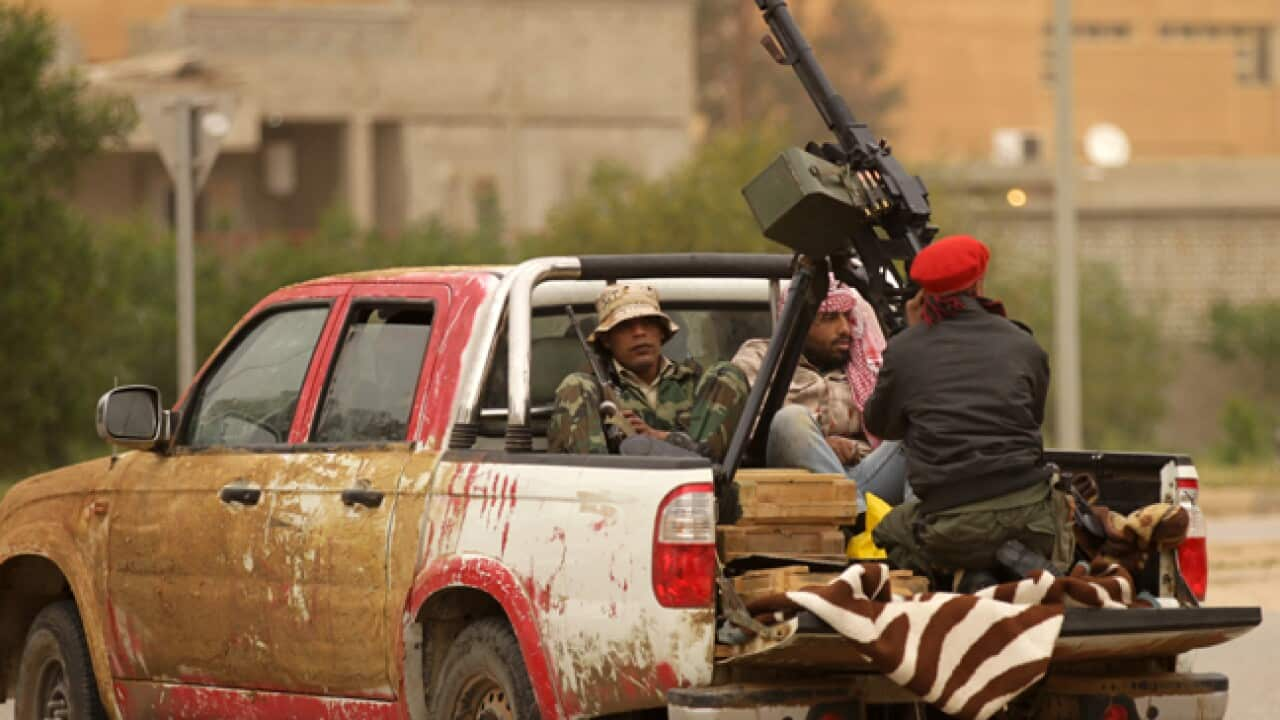A top US general maintains it is unlikely that Libyan rebel forces could oust the regime's leader Muammar Gaddafi, saying the conflict appeared to be turning into a stalemate.
General Carter Ham, who led the first stage of the coalition air campaign in Libya, said the international bombing raids had succeeded in protecting civilians for the most part but that Gaddafi's regime probably would not be removed by military means.
Asked at a Senate hearing about the chances that the opposition could "fight their way" to Tripoli and replace Gaddafi, Ham said: "Sir, I would assess that as a low likelihood."
And when pressed by Senator John McCain whether the situation was essentially a stalemate or an "emerging stalemate," Ham said: "Senator, I would agree with that at present on the ground."
Under tough questioning, the general said a stalemate is "not the preferred solution" in Libya but that outcome appeared "more likely" now than at the outset of the air campaign launched March 19.
But Ham said removing Gaddafi was not part of the UN-mandated mission to protect civilians, and that the US administration wanted to rely on diplomatic and other means to force him to step down.
Growing concern that Libya fight 'deadlocked'
His comments underscored growing concern in Washington and European capitals that the fight in Libya could be deadlocked, with Gaddafi firmly in control in Tripoli and badly-organized rebels unable to turn the tide even under the cover of NATO-led air power.
France's Foreign Minister Alain Juppe, however, took a more optimistic view, saying Gaddafi's regime would inevitably fall.
In Washington, McCain and some other members of the Senate Armed Services Committee slammed the Obama administration for taking what they called a half-hearted approach to the war, saying removing Gaddafi should be part of the military mission.
But Ham warned that the United States had tried "regime change" elsewhere before.
"We have some history in trying to apply military force to regime change where we have been less than successful," he said, alluding to Iraq.
The general said it was possible an international ground force might be deployed if and when Gaddafi leaves, but warned that an American presence might trigger a backlash in the region.
"I suspect there might be some consideration of that. My personal view at this point would be that that's probably not the ideal circumstance, again, for the regional reactions that having American boots on the ground would entail."
Arabs arming rebels: Ham
Amid calls by some senators to arm and train the rebels before it was too late, Ham said that he had "some indication that some Arab nations are in fact starting to do that at present."
But the general expressed caution, saying any effort to supply arms had to be carried out carefully to avoid weapons getting into the hands of extremists.
As an example, he cited the danger that militants could seize some of the estimated 20,000 shoulder-launched missiles in Libya, calling it "a regional and an international concern."
After edging to within 60 kilometres of Gaddafi's hometown of Sirte on March 28, the Libyan rebels have been steadily pushed back almost 400 kilometers (250 miles) by the superior fire power of Gaddafi's forces, despite coalition air strikes.
Ham said bombing raids had undercut the regime's ability to target civilians -- except in the besieged city of Misrata.
The rag-tag rebels are struggling to defend Misrata, Libya's third city, under an onslaught from better armed regime forces.
Ham said Gaddafi had moved tanks and troops into parts of the city and that had made air strikes more difficult to carry out without endangering civilians.
The US military pulled back about 50 combat aircraft this week from the air campaign as NATO took command of the Libya operation.
But Ham said the US AC-130 gunships, which can target tanks and ground targets with powerful guns, were now available to the NATO commander of the air operation if he needed them.
US military leaders had previously said the side-firing AC-130 aircraft, along with other ground-attack planes and fighters, would be withdrawn and placed on standby, pending a request from the NATO alliance.

